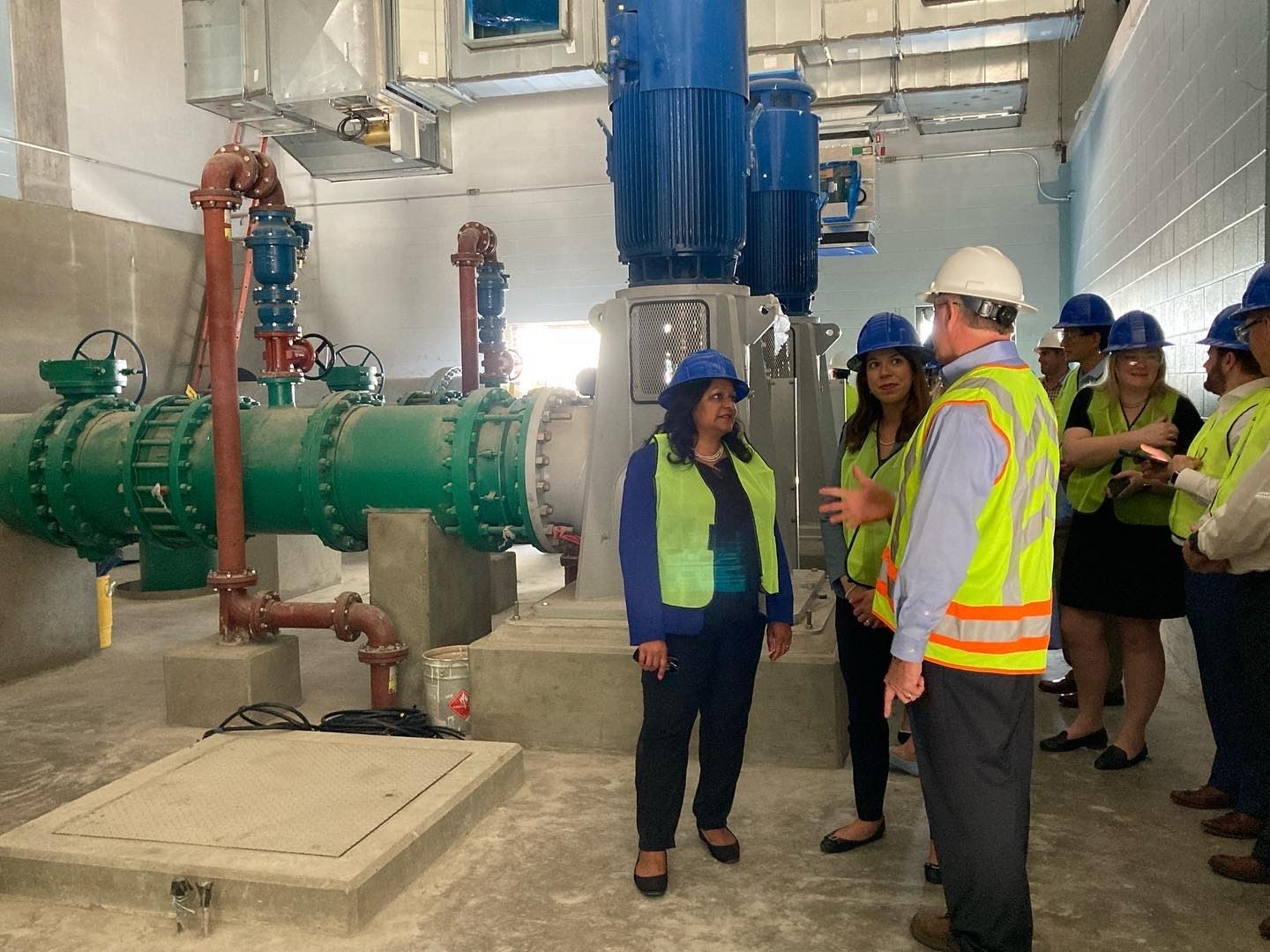Radhika Fox, Assistant Administrator for the U.S. EPA’s Office of Water, on Wednesday toured the new Granular Activated Carbon (GAC) filter facility under construction at CFPUA’s Sweeney Water Treatment Plant.
Assistant Administrator Fox was joined Wednesday by EPA staff, as well as N.C. Department of Environmental Quality (DEQ) Secretary Elizabeth Biser, DEQ staff, and staff of the North Carolina Collaboratory.
The Sweeney Plant sources raw water from the Cape Fear River and provides drinking water to approximately 80% of CFPUA’s customers. Eight new deep-bed GAC filters to remove PFAS from treated drinking water are expected to come online this summer, providing effective treatment for PFAS and reducing GenX to at or near non-detectable levels. CFPUA is building the deep-bed GAC filters in response to PFAS contamination in the Cape Fear River, traced to decades of discharges from a chemical manufacturing plant operated by Chemours and its predecessor, DuPont.
Assistant Administrator Fox’s tour of Sweeney followed her keynote address at the 3rd National PFAS Meeting in Wilmington. She congratulated CFPUA for its work on new water treatment technology at the Sweeney Plant and emphasized the importance of EPA’s partnerships with state environmental agencies.
“EPA has been really proud to partner with the State of North Carolina in protecting public health,” Assistant Administrator Fox said. “I congratulate the State of North Carolina for their PFAS action plan, and really pursuing very wholistic approaches to protect the people of North Carolina.”
Staff from Brunswick County Public Utilities also presented an update on their work to enhance treatment processes at their Northwest Water Treatment Plant.
“My takeaway from this is looking at all of the research that has gone into this process for both Brunswick County and CFPUA. They’ve really been on the front lines of dealing with this issue, by necessity,” Secretary Biser said. “I know that a lot of folks are going to be looking to these two organizations for guidance.”
“We are deeply grateful for Assistant Administrator Fox, Secretary Biser, and their staffs for taking the time to visit Wilmington and see the work CFPUA is doing to protect our customers’ drinking water,” CFPUA Executive Director Kenneth Waldroup said. “Even before the discovery of PFAS in the Cape Fear River, the Sweeney Plant was one of the most advanced water treatment plants in North Carolina. When this project is completed this summer, Sweeney will be among the most effective in the entire region at removing PFAS.
“We look forward to continuing to work with our partners at EPA and DEQ as the science evolves around emerging contaminants and as new guidance is issued to ensure clean drinking water for customers in the coming years,” Mr. Waldroup said.
Constructing the GAC enhancements at the Sweeney Plant was a $43 million project. Once the filters come online, yearly operating costs are estimated at $3 to $5 million. CFPUA has filed a lawsuit in federal court against Chemours and DuPont over costs related to removing their PFAS from drinking water.
For more information about CFPUA’s Sweeney Treatment Enhancements Project, visit www.CFPUA.org/Sweeney.

Radhika Fox, Assistant Administrator for the U.S. EPA’s Office of Water, (left) and N.C. Department of Environmental Quality Secretary Elizabeth Biser (center) speak with CFPUA Deputy Executive Director Carel Vandermeyden Wednesday at the Sweeney Water Treatment Plant.